-
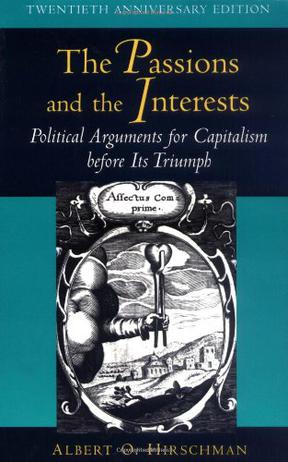
The Passions and the Interests
In this volume, Albert Hirschman reconstructs the intellectual climate of the seventeenth and eighteenth centuries to illuminate the intricate ideological transformation that occurred, wherein the pursuit of material interests - so long condemned as the deadly sin of avarice - was assigned the role of containing the unruly and destructive passions of man. Hirschman here offers a new interpretation for the rise of capitalism, one that emphasizes the continuities between old and new, in contrast to the assumption of a sharp break that is a common feature of both Marxian and Weberian thinking. Among the insights presented here is the ironical finding that capitalism was originally supposed to accomplish exactly what was soon denounced as its worst feature: the repression of the passions in favor of the 'harmless,' if one-dimensional, interests of commercial life. To portray this lengthy ideological change as an endogenous process, Hirschman draws on the writings of a large number of thinkers, including Montesquieu, Sir James Steuart, and Adam Smith. -
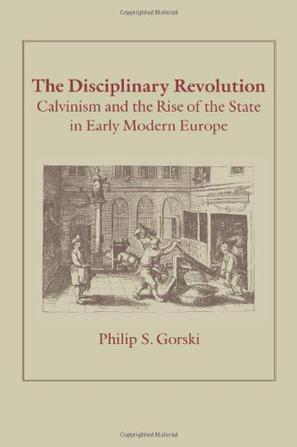
The Disciplinary Revolution
What explains the rapid growth of state power in early modern Europe? While most scholars have pointed to the impact of military or capitalist revolutions, Philip S. Gorski argues instead for the importance of a disciplinary revolution unleashed by the Reformation. By refining and diffusing a variety of disciplinary techniques and strategies, such as communal surveillance, control through incarceration, and bureaucratic office-holding, Calvin and his followers created an infrastructure of religious governance and social control that served as a model for the rest of Europe—and the world. Table of Contents Preface and Acknowledgments Introduction 1. Body and Soul: Calvinism, Discipline, and State Power in Early Modern Europe 2. Disciplinary Revolution from below in the Low Countries 3. Disciplinary Revolution from above in Brandenburg-Prussia 4. Social Disciplining in Comparative Perspective Conclusion Notes Bibliography Index -
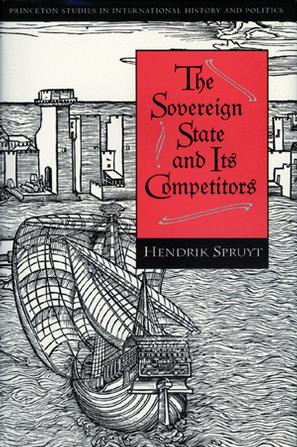
The Sovereign State and Its Competitors
The present international system, composed for the most part of sovereign, territorial states, is often viewed as the inevitable outcome of historical development. Hendrik Spruyt argues that there was nothing inevitable about the rise of the state system, however. Examining the competing institutions that arose during the decline of feudalism--among them urban leagues, independent communes, city states, and sovereign monarchies--Spruyt disposes of the familiar claim that the superior size and war-making ability of the sovereign nation-state made it the natural successor to the feudal system. The author argues that feudalism did not give way to any single successor institution in simple linear fashion. Instead, individuals created a variety of institutional forms, such as the sovereign, territorial state in France, the Hanseatic League, and the Italian city-states, in reaction to a dramatic change in the medieval economic environment. Only in a subsequent selective phase of institutional evolution did sovereign, territorial authority prove to have significant institutional advantages over its rivals. Sovereign authority proved to be more successful in organizing domestic society and structuring external affairs. Spruyt's interdisciplinary approach not only has important implications for change in the state system in our time, but also presents a novel analysis of the general dynamics of institutional change. -
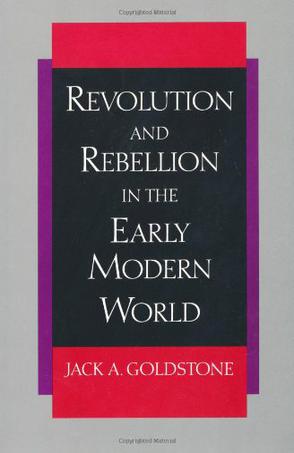
Revolution and Rebellion in the Early Modern World
What can the great crises of the past teach us about contemporary revolutions? Arguing from an exciting and original perspective, Goldstone suggests that great revolutions were the product of 'ecological crises' that occurred when inflexible political, economic, and social institutions were overwhelmed by the cumulative pressure of population growth on limited available resources. Moreover, he contends that the causes of the great revolutions of Europe--the English and French revolutions--were similar to those of the great rebellions of Asia, which shattered dynasties in Ottoman Turkey, China, and Japan. The author observes that revolutions and rebellions have more often produced a crushing state orthodoxy than liberal institutions, leading to the conclusion that perhaps it is vain to expect revolution to bring democracy and economic progress. Instead, contends Goldstone, the path to these goals must begin with respect for individual liberty rather than authoritarian movements of 'national liberation.' Arguing that the threat of revolution is still with us, Goldstone urges us to heed the lessons of the past. He sees in the United States a repetition of the behavior patterns that have led to internal decay and international decline in the past, a situation calling for new leadership and careful attention to the balance between our consumption and our resources. Meticulously researched, forcefully argued, and strikingly original, Revolutions and Rebellions in the Early Modern World is a tour de force by a brilliant young scholar. It is a book that will surely engender much discussion and debate. -

解释过去,了解现在
《解释过去,了解现在:历史社会学》是一本外国著作的中文版本,成书于1999年,一经出版就成为这一领域的一本重要书目。《解释过去,了解现在:历史社会学》主要是针对所谓的"历史学的社会学式运用"这个议题的论文集,审视这两门学科之间日益频繁的交流。《解释过去,了解现在:历史社会学》学术性强,是新时期研究社会学和历史学的一本必读书目。 -
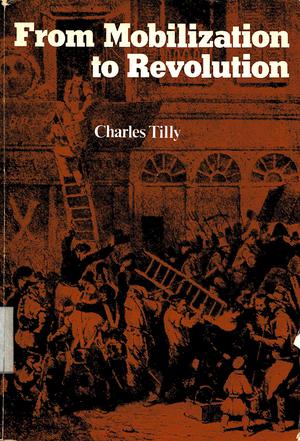
From Mobilization to Revolution